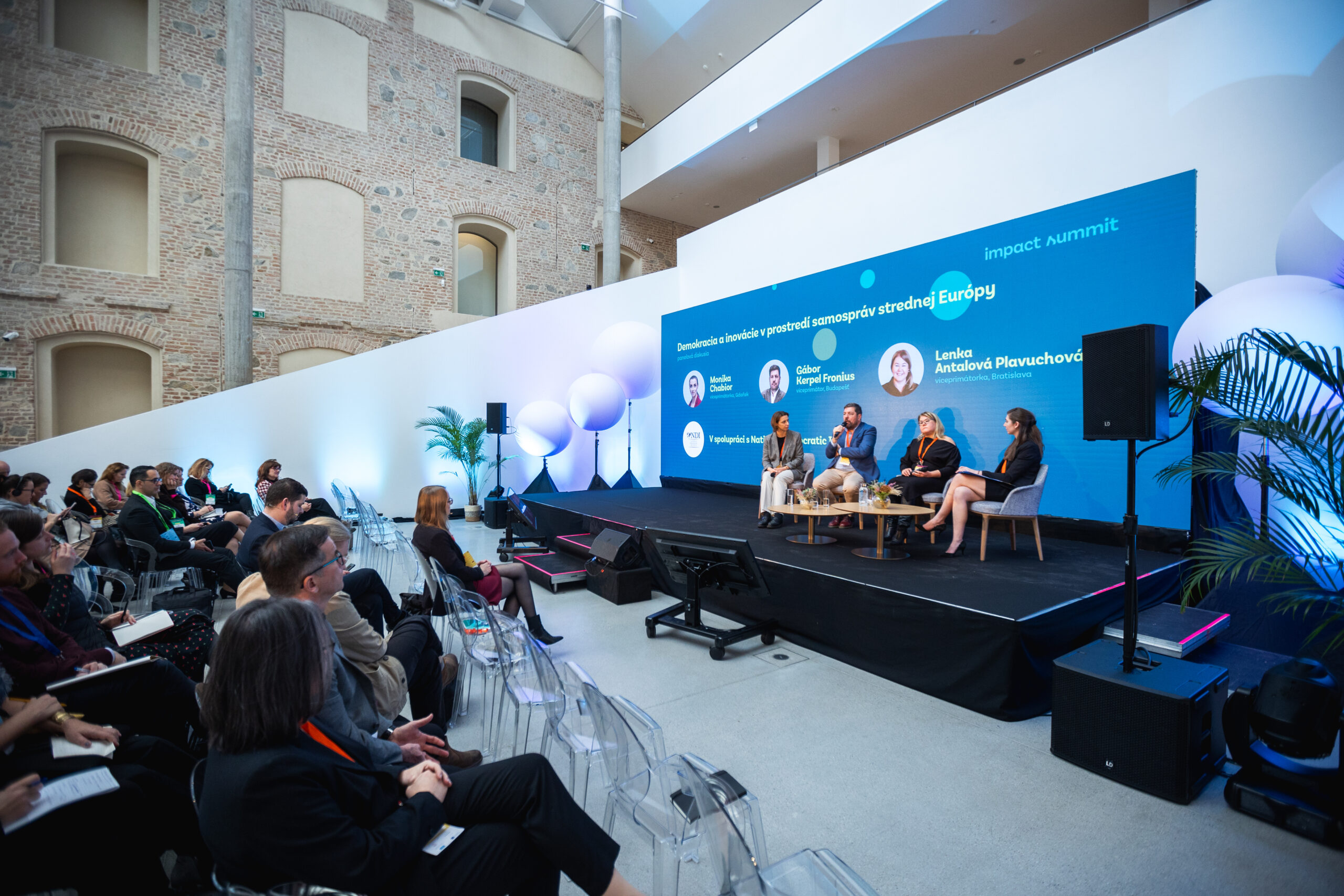We don’t trust institutions or each other in Slovakia. Trust as the central theme of this year’s Impact Summit
10.09.2024 |

We are acutely aware of the state our country is in. Society is divided into camps, constructive solutions are being squeezed out by populism, and the civil sector, together with the rule of law, is facing a lot of pressure.
In order to successfully withstand crises, society needs to be united. It is cohesion that makes communities work, keeps groups together, fosters cooperation and respect for common rules, which leads to the creation of mutual trust.
In Slovakia, however, we observe low trust among people and towards institutions, which is related to the weakening of the importance of local authorities and state institutions, the growth of anti-systemic sentiment, the worsening of the ability to respond to crises, and the increased polarisation of society (DEKK Institute).
Interpersonal trust has been stagnant for a long time, but among institutions, the public trusts the non-state sectors the most. Scientists and scientific institutions are in first place (64.6%), followed by universities and colleges (62.6%), and in third place are Slovak companies together with local government (59.9%) (DEKK Institute, Trends (Distrust) 2023).
Relatively high trust in the private sector is a clear signal for companies to be socially responsible. This is confirmed by the findings of global surveys, where business is perceived as the most trusted institution for introducing innovation into society and the public also expects it to engage on value issues (Edelman Trust Barometer 2024).
This year, we want to continue the debate on strengthening democracy and demonstrate the role of trust in this process by linking the public, civil and corporate sectors.
Key note speakers will include peace activist Bjorn Ihler, a survivor of Anders Breivik’s mass shooting in Utøya, Norway. Swedish businessman and philanthropist Daniel Sachs will talk (not only) about the role of philanthropy and the responsibility of business in promoting democracy. Veronika Móra is the director of the Okotars Foundation from Hungary, which in 2014 was subjected to raids, inspections by the authorities and an the investigation by the government’s NGO watchdog, the European Commission for the Control of Non-Governmental Organisations (KEHI).
Slovakia will also be represented in the discussion on trust – Pavel Kosnáč, director and analyst from the DEKK Institute and academics from Comenius University – Helena Tužinská and Juraj Buzalka. Civil society organisations will outline the ways in which social innovation can contribute to confidence building and depolarisation.
Names of other speakers will be announced soon.
The Impact Summit will connect 250 people from civil society, business and government, creating a space for discussions on key issues in our society. The event will take place on Wednesday 4th December 2024 from 9:00 am at the Arena Theatre in Bratislava.